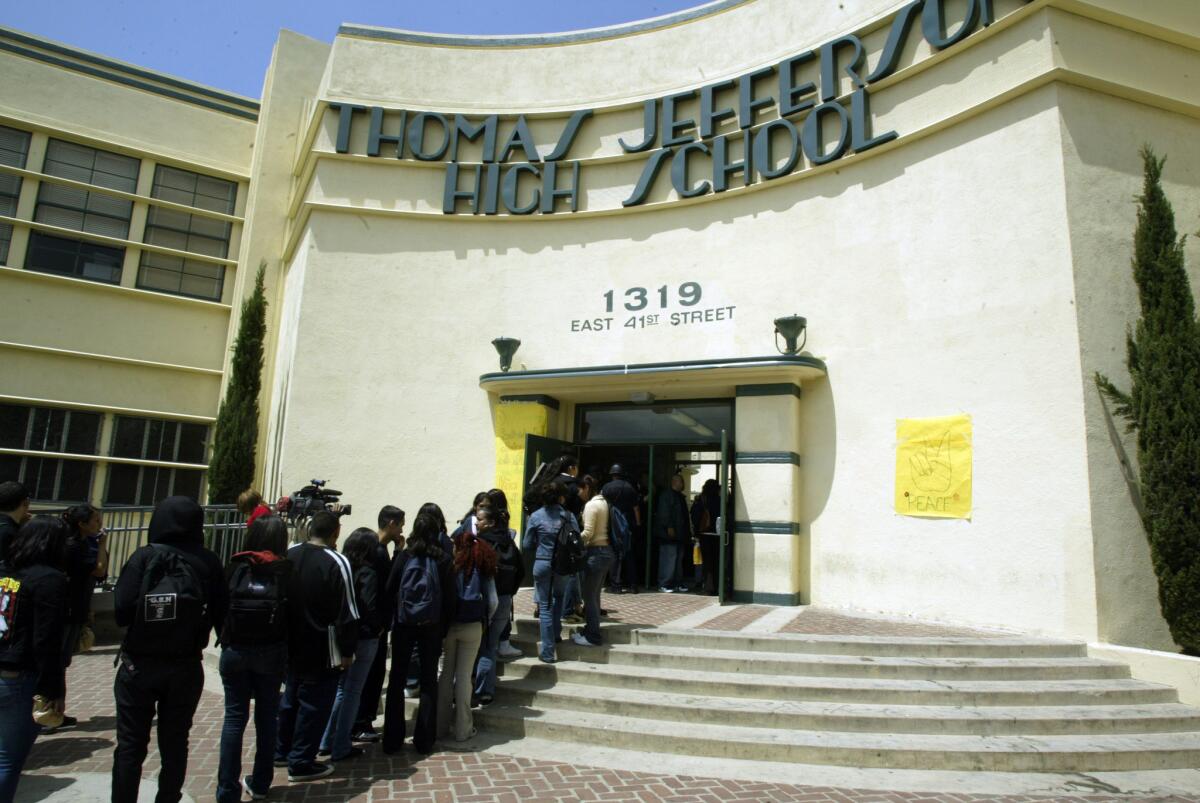Editorial: Stop warehousing students in content-free ‘classes’

- Share via
The primary duty of schools is to teach. Yet at high schools throughout the state, students are assigned to “classes” with no instruction, in which they’re warehoused, assigned chores or even sent home for a period or two. The latter is, in effect, school-sanctioned truancy.
This waste of students’ time is particularly outrageous in schools with heavy concentrations of disadvantaged children who aren’t on track to graduate or qualify for entry to a four-year college. These schools too often lack the staffing to offer all the courses students need. In Los Angeles, the situation was exacerbated this year when the new computer system for scheduling classes encountered major problems, particularly fouling schedules at Jefferson High in South L.A.
For students with a heavy academic load, a study hall can be useful. And there is potential value to “service periods” in which students help a teacher or work in the school office. But such periods should not replace core academic work. Too often, students spend weeks pleading for access to classes they need to graduate or apply to college. Many are assigned to multiple periods of empty class time every day.
The American Civil Liberties Union, Public Counsel and others are suing California on behalf of students, claiming that the state must do whatever it takes to stop warehousing them in non-instructional, content-free classes. The lawsuit cited as examples seven schools in four districts, including two in Los Angeles Unified. More recently, Jefferson High was added to the list, and on Wednesday a judge ordered the state to intervene there while the case continues.
The plaintiffs are seeking more resources from the state for additional course offerings at impoverished schools, as well as stronger oversight. The state, in response, has argued that this is the responsibility of local districts, especially under new state policies and funding formulas that provide extra money to low-income schools while giving districts more authority over how to use it.
The state is not wrong. Districts are better suited to track courses at each school. Los Angeles Unified, for example, whose Supt. John Deasy has come out in support of the lawsuit, received extra funding this year and will receive more each year until at least 2018. If this is one of Deasy’s priorities, why didn’t he reshape his budget to invest more of the new money in adequate course offerings? He says he still doesn’t have sufficient resources to offer the classes that are needed.
Every student should have timely access to all courses required for graduation and for admission to college. Anything less is unacceptable. State and local officials need to work together to rescue students from an untenable situation.
Follow the Opinion section on Twitter @latimesopinion
More to Read
A cure for the common opinion
Get thought-provoking perspectives with our weekly newsletter.
You may occasionally receive promotional content from the Los Angeles Times.









